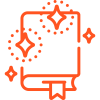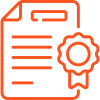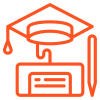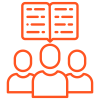The winning bet of the D.G of CAMEG-Burkina Faso
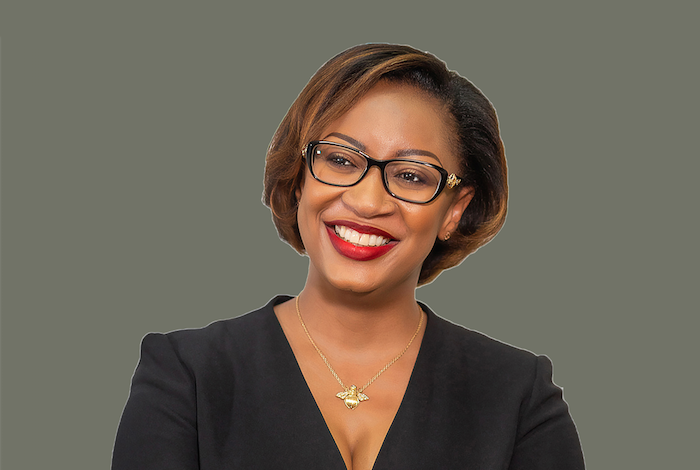
Pharmacist and holder of a Master's degree in Health Industry Management, former director of commercial operations for Novartis in sub-Saharan Africa (17 countries) , Doctor Anne-Maryse K'HABORE has directed the Central Purchasing of Generic Essential Medicines and Medical Consumables (CAMEG) in Burkina Faso since 2018. We asked her about the missions of the purchasing center, and what these imply as a transformation effort for a leading organization in the health field. The interview also focused on guarantees of product quality and transparency of procedures within CAMEG Burkina. An interview without tongue in cheek or escaping from the concrete with a frank and direct style.
First of all, what is CAMEG – Burkina and what are its missions and means of action?
CAMEG of Burkina Faso is the purchasing center which ensures the supply of the national health system with health inputs. It supplies both the public and private health systems, and that is one of its particularities. CAMEG Burkina was created in 1992 by presidential decree, following the “Bamako initiative”, with the main objective of guaranteeing the availability and improving accessibility to essential generic medicines. The aim is to ensure that the entire population can benefit from quality medicines at lower costs, throughout the national territory. It is this objective which explains the network of the national territory with the 11 commercial agencies of CAMEG in order to get as close as possible to patients. This decentralization model is based on clean logistics with warehouses and means of transport that meet standards, guaranteeing the quality of medical products from central stores to regional depots, which we call commercial agencies. It is therefore the performance of our organization that allows us to resell our expertise to sister centers in the sister countries of Burkina Faso.
CAMEG of Burkina Faso is the purchasing center which ensures the supply of the national health system with health inputs. It supplies both the public and private health systems, and that is one of its particularities. CAMEG Burkina was created in 1992 by presidential decree, following the “Bamako initiative”, with the main objective of guaranteeing the availability and improving accessibility to essential generic medicines. The aim is to ensure that the entire population can benefit from quality medicines at lower costs, throughout the national territory. It is this objective which explains the network of the national territory with the 11 commercial agencies of CAMEG in order to get as close as possible to patients. This decentralization model is based on clean logistics with warehouses and means of transport that meet standards, guaranteeing the quality of medical products from central stores to regional depots, which we call commercial agencies. It is therefore the performance of our organization that allows us to resell our expertise to sister centers in the sister countries of Burkina Faso.
Would this expertise, which you speak of, be likely to allow CAMEG to extend its activities beyond Burkina Faso or is it mainly for sharing know-how?
Very sincerely both because we have successful experiences. Our leadership has already allowed us to host the permanent secretariat of the African Association of Central Purchasing Centers for Essential Medicines (ACAME) since its creation in 1996. It should be remembered that the occurrence of several epidemic episodes in sub-Saharan Africa in a context of devaluation of the CFA franc (which had dealt a hard blow to the countries of the franc zone) led to the creation of ACAME, with the main objective the pooling of drug purchases in order to minimize order costs based on volumes. Thus, thanks to our expertise within the ACAME network, in particular the MTN (Neglected Tropical Diseases)project relating to malaria chemoprophylaxis, we were able to ensure supplies to Niger and Mali in health inputs, when the need is expressed. This experience of group purchasing, our successful experiences of decentralization, the importance of our human and material resources, but above all the quality of the medicines which we ensure the supply at a lower cost, give rise to study trips and welcoming several interns. All these results are part of our strategic vision and will be reinforced by the implementation of our strategic plan which, by 2025, should allow CAMEG to be recognized, on the one hand, as an efficient power plant on a national scale and, on the other hand, for its expertise on a regional scale.
Very sincerely both because we have successful experiences. Our leadership has already allowed us to host the permanent secretariat of the African Association of Central Purchasing Centers for Essential Medicines (ACAME) since its creation in 1996. It should be remembered that the occurrence of several epidemic episodes in sub-Saharan Africa in a context of devaluation of the CFA franc (which had dealt a hard blow to the countries of the franc zone) led to the creation of ACAME, with the main objective the pooling of drug purchases in order to minimize order costs based on volumes. Thus, thanks to our expertise within the ACAME network, in particular the MTN (Neglected Tropical Diseases)project relating to malaria chemoprophylaxis, we were able to ensure supplies to Niger and Mali in health inputs, when the need is expressed. This experience of group purchasing, our successful experiences of decentralization, the importance of our human and material resources, but above all the quality of the medicines which we ensure the supply at a lower cost, give rise to study trips and welcoming several interns. All these results are part of our strategic vision and will be reinforced by the implementation of our strategic plan which, by 2025, should allow CAMEG to be recognized, on the one hand, as an efficient power plant on a national scale and, on the other hand, for its expertise on a regional scale.
You spoke about the strategies of the CAMEG of Burkina Faso, how do you intend to implement them to achieve the objectives, I assume that there are significant logistical challenges to overcome?
Absolutely. One of the particularities of CAMEG is our distribution policy which is really specific throughout the sub-region. As I said previously in the CAMEG presentation, we have a decentralization model to bring medicines closer to patients. From our central warehouses in Ouagadougou, we ensure the availability of products within the country from our regional agencies. I would also like to take this opportunity to salute the efforts made by my predecessors in the development of this decentralization policy which today is bearing fruit and represents for CAMEG a strength and a model that many countries take as an example. . This decentralization is also based on very efficient logistics. Each commercial agency has a warehouse of approximately 10,000 m3, which represents a total storage capacity of 150,000 m3. It is one of the largest in the sub-region. This advantage allows us to guarantee stock availability, at least three months and maximum 10 months of products. This storage capacity is facilitated by our fleet of around fifty large capacity vehicles (40 tonnes and 20 tonnes), but also of medium-capacity vehicles for urban deliveries.
Absolutely. One of the particularities of CAMEG is our distribution policy which is really specific throughout the sub-region. As I said previously in the CAMEG presentation, we have a decentralization model to bring medicines closer to patients. From our central warehouses in Ouagadougou, we ensure the availability of products within the country from our regional agencies. I would also like to take this opportunity to salute the efforts made by my predecessors in the development of this decentralization policy which today is bearing fruit and represents for CAMEG a strength and a model that many countries take as an example. . This decentralization is also based on very efficient logistics. Each commercial agency has a warehouse of approximately 10,000 m3, which represents a total storage capacity of 150,000 m3. It is one of the largest in the sub-region. This advantage allows us to guarantee stock availability, at least three months and maximum 10 months of products. This storage capacity is facilitated by our fleet of around fifty large capacity vehicles (40 tonnes and 20 tonnes), but also of medium-capacity vehicles for urban deliveries.
What guarantees does CAMEG have to reassure the quality of the medicines it distributes?
The question of quality is at the center of our activities. It is through quality that we differentiate ourselves and it is through quality that we acquire the trust of populations, partners and public authorities. It is therefore a sine qua non condition for the existence of CAMEG. To do this, we have put in place a certain number of systems based on international benchmarks in this area, such as the WHO's “model quality assurance system” (MQAS) . The first concerns our purchasing policy. All our suppliers are subject to a prequalification procedure, carried out on quality criteria, before being authorized to participate in our calls for tenders. The second system concerns our supplier partners. They are regularly inspected to ensure that what has been mentioned on their documents is consistent with the reality of their activities. The third system concerns the quality control of purchases. The products received are systematically quarantined in a store. A quality control sample is carried out by the national public health laboratory to ensure the quality of each supplier's products. It is following authorization from the national laboratory that the products are transported to our warehouses.
Here too, I would like to emphasize the conditions of storage (our stores) and distribution (our vehicles) which all respect the standards in this area for each type of product. Temperature and humidity sensors allow us to ensure the regularity of the cold chain, essential for the good conservation of health products. Finally, our ISO 9001: 2015 certification, which we have just received at the end of July 2021, is a quality label which guarantees the fact that we work according to international norms and standards. Indeed, we are one of the rare purchasing centers in sub-Saharan Africa to have certified all purchasing, storage and distribution procedures in all our 11 sales agencies. This quality requirement that we have voluntarily imposed on ourselves, aims to strengthen the confidence of the population, the government and technical and financial partners in the reliability, safety and quality of our supply chain and health inputs. which we make available throughout the entire territory of Burkina Faso and even beyond.
The question of quality is at the center of our activities. It is through quality that we differentiate ourselves and it is through quality that we acquire the trust of populations, partners and public authorities. It is therefore a sine qua non condition for the existence of CAMEG. To do this, we have put in place a certain number of systems based on international benchmarks in this area, such as the WHO's “model quality assurance system” (MQAS) . The first concerns our purchasing policy. All our suppliers are subject to a prequalification procedure, carried out on quality criteria, before being authorized to participate in our calls for tenders. The second system concerns our supplier partners. They are regularly inspected to ensure that what has been mentioned on their documents is consistent with the reality of their activities. The third system concerns the quality control of purchases. The products received are systematically quarantined in a store. A quality control sample is carried out by the national public health laboratory to ensure the quality of each supplier's products. It is following authorization from the national laboratory that the products are transported to our warehouses.
Here too, I would like to emphasize the conditions of storage (our stores) and distribution (our vehicles) which all respect the standards in this area for each type of product. Temperature and humidity sensors allow us to ensure the regularity of the cold chain, essential for the good conservation of health products. Finally, our ISO 9001: 2015 certification, which we have just received at the end of July 2021, is a quality label which guarantees the fact that we work according to international norms and standards. Indeed, we are one of the rare purchasing centers in sub-Saharan Africa to have certified all purchasing, storage and distribution procedures in all our 11 sales agencies. This quality requirement that we have voluntarily imposed on ourselves, aims to strengthen the confidence of the population, the government and technical and financial partners in the reliability, safety and quality of our supply chain and health inputs. which we make available throughout the entire territory of Burkina Faso and even beyond.
Can you also tell us a few words about the guarantee of the regularity of calls for tenders?
The certification according to the ISO 9001: 2015 standard granted by international auditors from BSI Group (British Standard Institution) which I have just spoken about, also concerns the quality of management and therefore the transparency of our procedures. For example, at CAMEG we have a technical ratio relating to purchases. Over the last three years, 98% of our purchases have been made through the call for tenders procedure, and therefore competition between pre-qualified suppliers. A technical commission sits and awards contracts. In three years, by adopting this policy of competition between suppliers, we have made savings of nearly 3 billion CFA Francs. It is these savings that have allowed us to subsidize the prices of several drugs and medical consumables, while maintaining a constant price for drugs whose costs on the international market have increased. This is also our public service mission with a social vocation.
The certification according to the ISO 9001: 2015 standard granted by international auditors from BSI Group (British Standard Institution) which I have just spoken about, also concerns the quality of management and therefore the transparency of our procedures. For example, at CAMEG we have a technical ratio relating to purchases. Over the last three years, 98% of our purchases have been made through the call for tenders procedure, and therefore competition between pre-qualified suppliers. A technical commission sits and awards contracts. In three years, by adopting this policy of competition between suppliers, we have made savings of nearly 3 billion CFA Francs. It is these savings that have allowed us to subsidize the prices of several drugs and medical consumables, while maintaining a constant price for drugs whose costs on the international market have increased. This is also our public service mission with a social vocation.
Street drugs constitute a public health danger and certainly represent a significant competitor to CAMEG. Do you think you are taking steps to reduce this scourge?
Street medications are dangerous for your health. Their marketing being illegal, I cannot say that they constitute a competitor for CAMEG, but rather a public health problem at the origin of several scourges including resistance to antibiotics, and the occurrence of serious illnesses such as insufficiency renal. The first thing we do is obviously to communicate about the harm of street medications and tell people that they now have good medications, accessible everywhere in the country and at a lower cost. Furthermore, with the support of the Ministry of Health, we are striving to have a harmonized supply system so that pharmaceutical products enter through a single route, in this case that of CAMEG. This allows better traceability and better control of the distribution circuit. Ultimately, the quality of our products, their availability and their geographic and financial accessibility are the best response to so-called street drugs. In addition, we support community initiatives in awareness campaigns on substandard or falsified medicines which are distributed in illicit circuits such as the street.
Street medications are dangerous for your health. Their marketing being illegal, I cannot say that they constitute a competitor for CAMEG, but rather a public health problem at the origin of several scourges including resistance to antibiotics, and the occurrence of serious illnesses such as insufficiency renal. The first thing we do is obviously to communicate about the harm of street medications and tell people that they now have good medications, accessible everywhere in the country and at a lower cost. Furthermore, with the support of the Ministry of Health, we are striving to have a harmonized supply system so that pharmaceutical products enter through a single route, in this case that of CAMEG. This allows better traceability and better control of the distribution circuit. Ultimately, the quality of our products, their availability and their geographic and financial accessibility are the best response to so-called street drugs. In addition, we support community initiatives in awareness campaigns on substandard or falsified medicines which are distributed in illicit circuits such as the street.
What impacts have the Covid 19 crisis and the security crisis plaguing Burkina Faso had on CAMEG's activities?
We face these situations just like our neighboring countries in the Sahelo-Sahel strip. Our resilience plan in the face of Covid-19 has enabled us to guarantee the availability of medicines while respecting our qualitative purchasing criteria. These are efforts that we are making with the support of the highest authorities in the country. Of course, for us, in accordance with the agreement we have with the Ministry of Health, we strive to ensure that the right to access health products is guaranteed and a reality for our populations. It is our duty that we assume.
We face these situations just like our neighboring countries in the Sahelo-Sahel strip. Our resilience plan in the face of Covid-19 has enabled us to guarantee the availability of medicines while respecting our qualitative purchasing criteria. These are efforts that we are making with the support of the highest authorities in the country. Of course, for us, in accordance with the agreement we have with the Ministry of Health, we strive to ensure that the right to access health products is guaranteed and a reality for our populations. It is our duty that we assume.
Last question, is being a woman, and moreover the first, at the head of CAMEG, a challenge or an asset for you?
I am in fact the first woman to lead CAMEG and one of five women from the 22 member countries of ACAME. Is this an asset or a challenge? I believe it's both. An asset, because there are qualities intrinsic to female management, such as rigor, empathy, discipline, participatory management. A challenge because as a woman leader, you don’t really have the right to make mistakes. We must be a model and an example to open the door to all women and young girls who aspire to positions of responsibility. And, I think that the results tend to prove that more and more, this leadership would benefit from being promoted…. Because a woman can do as well or better than a man. (Laughs).
I am in fact the first woman to lead CAMEG and one of five women from the 22 member countries of ACAME. Is this an asset or a challenge? I believe it's both. An asset, because there are qualities intrinsic to female management, such as rigor, empathy, discipline, participatory management. A challenge because as a woman leader, you don’t really have the right to make mistakes. We must be a model and an example to open the door to all women and young girls who aspire to positions of responsibility. And, I think that the results tend to prove that more and more, this leadership would benefit from being promoted…. Because a woman can do as well or better than a man. (Laughs).
